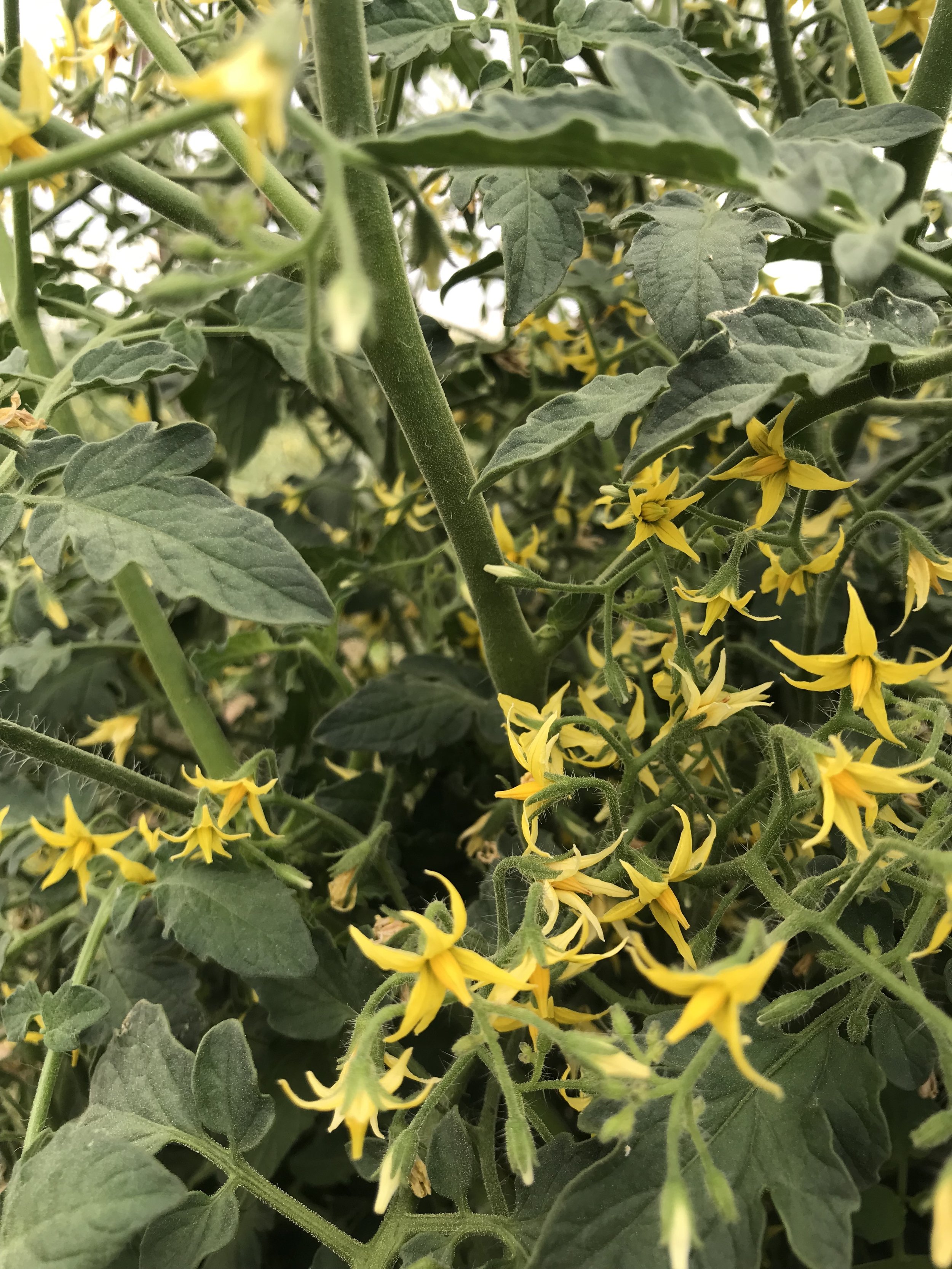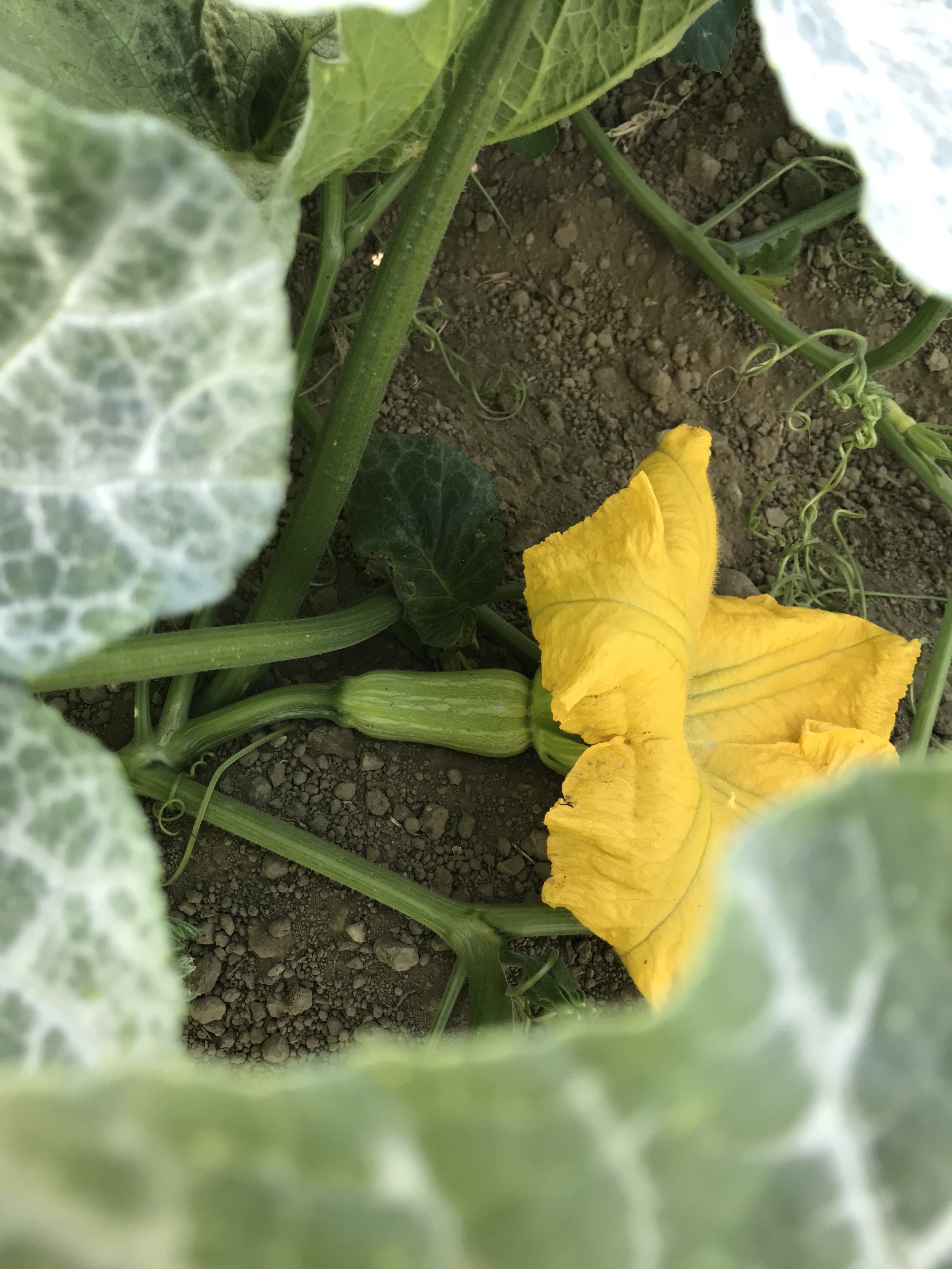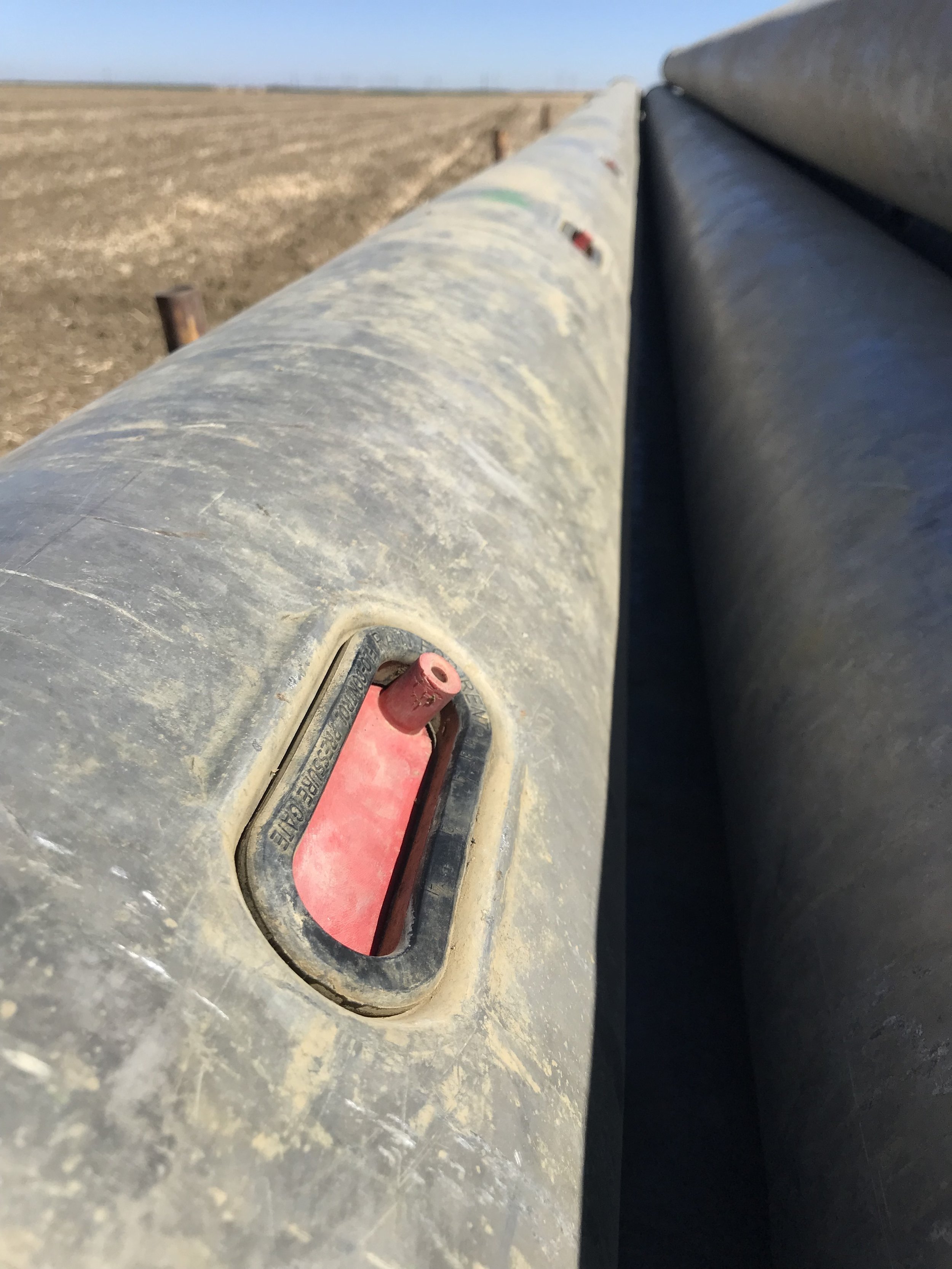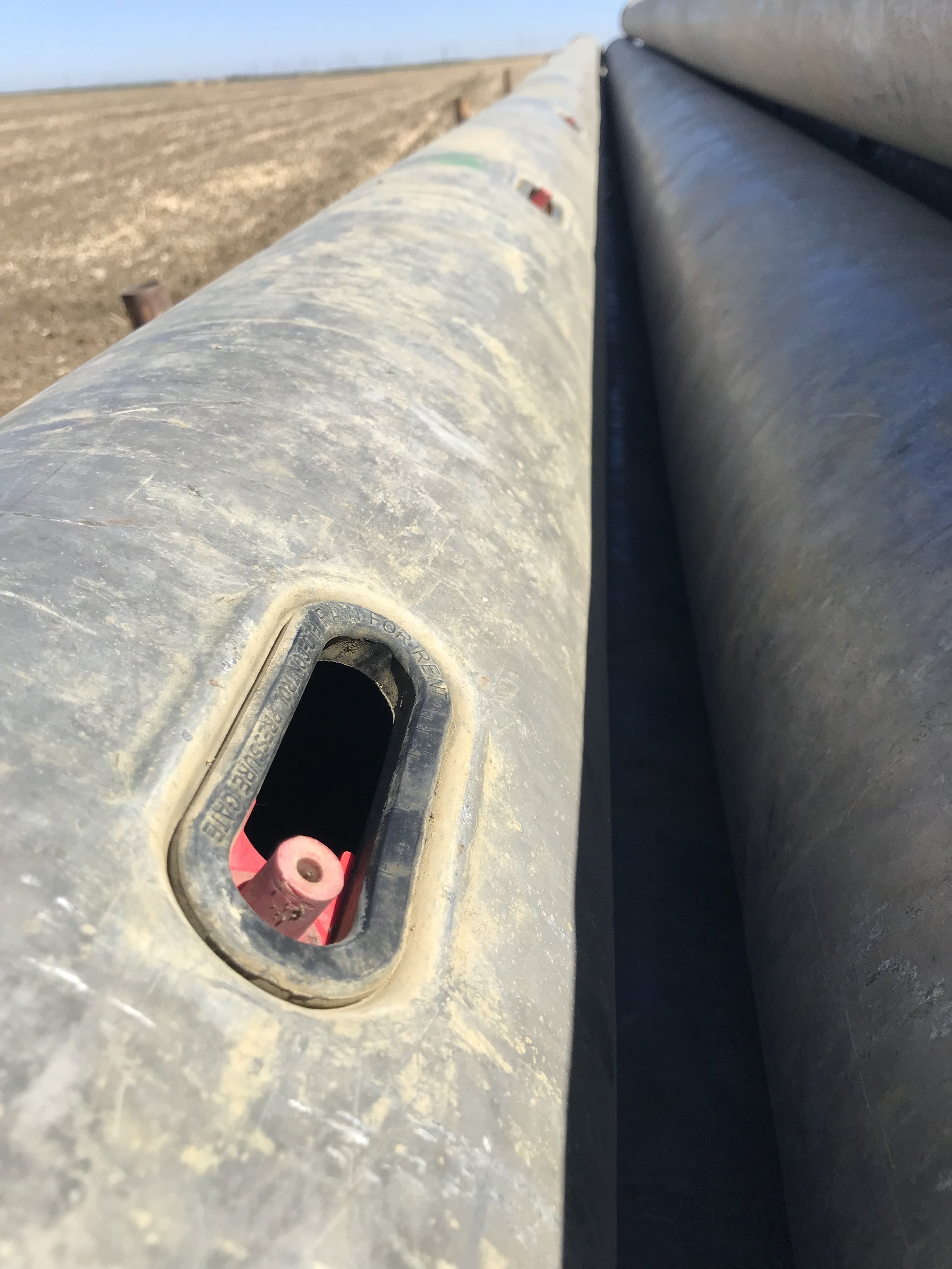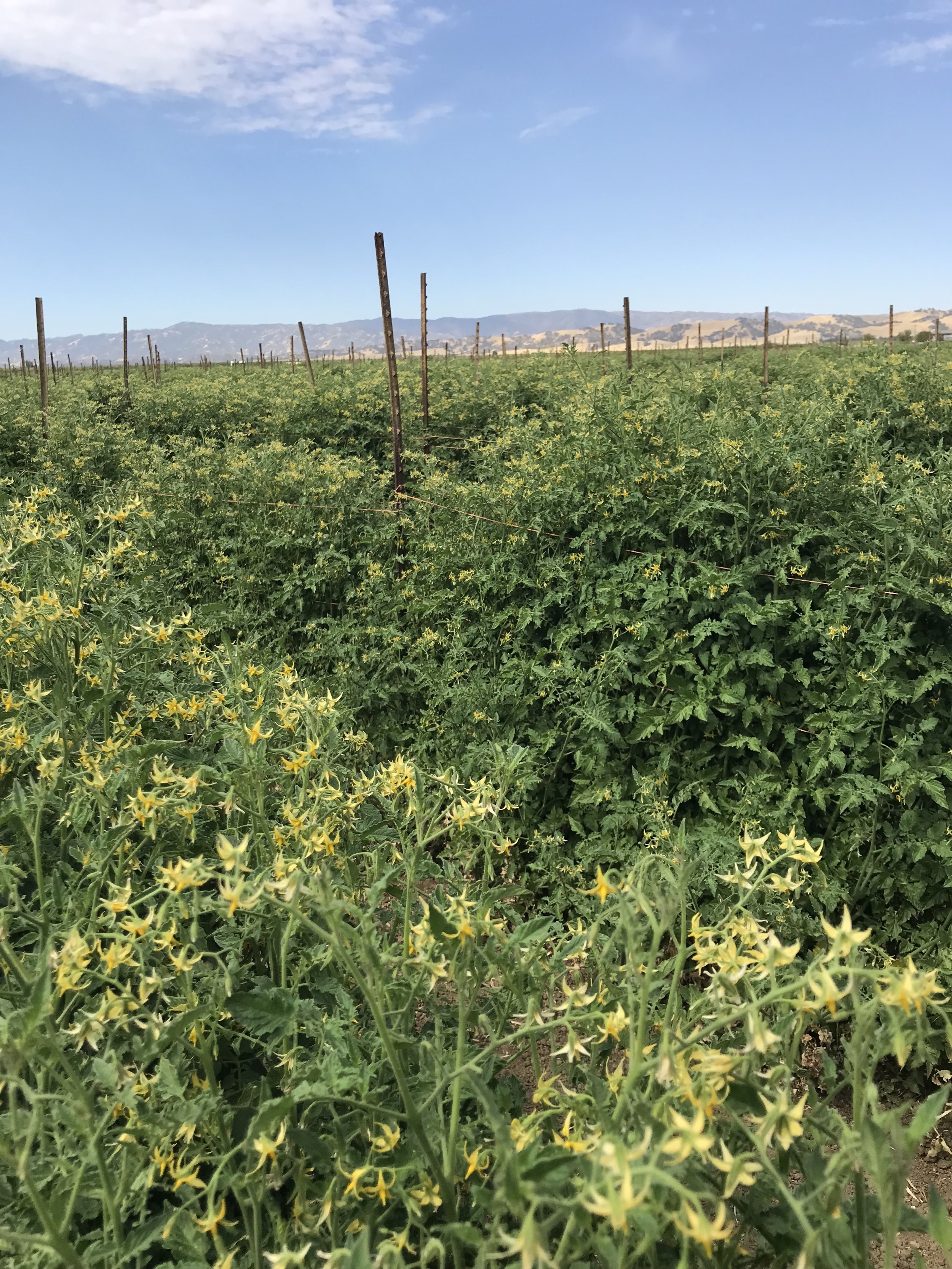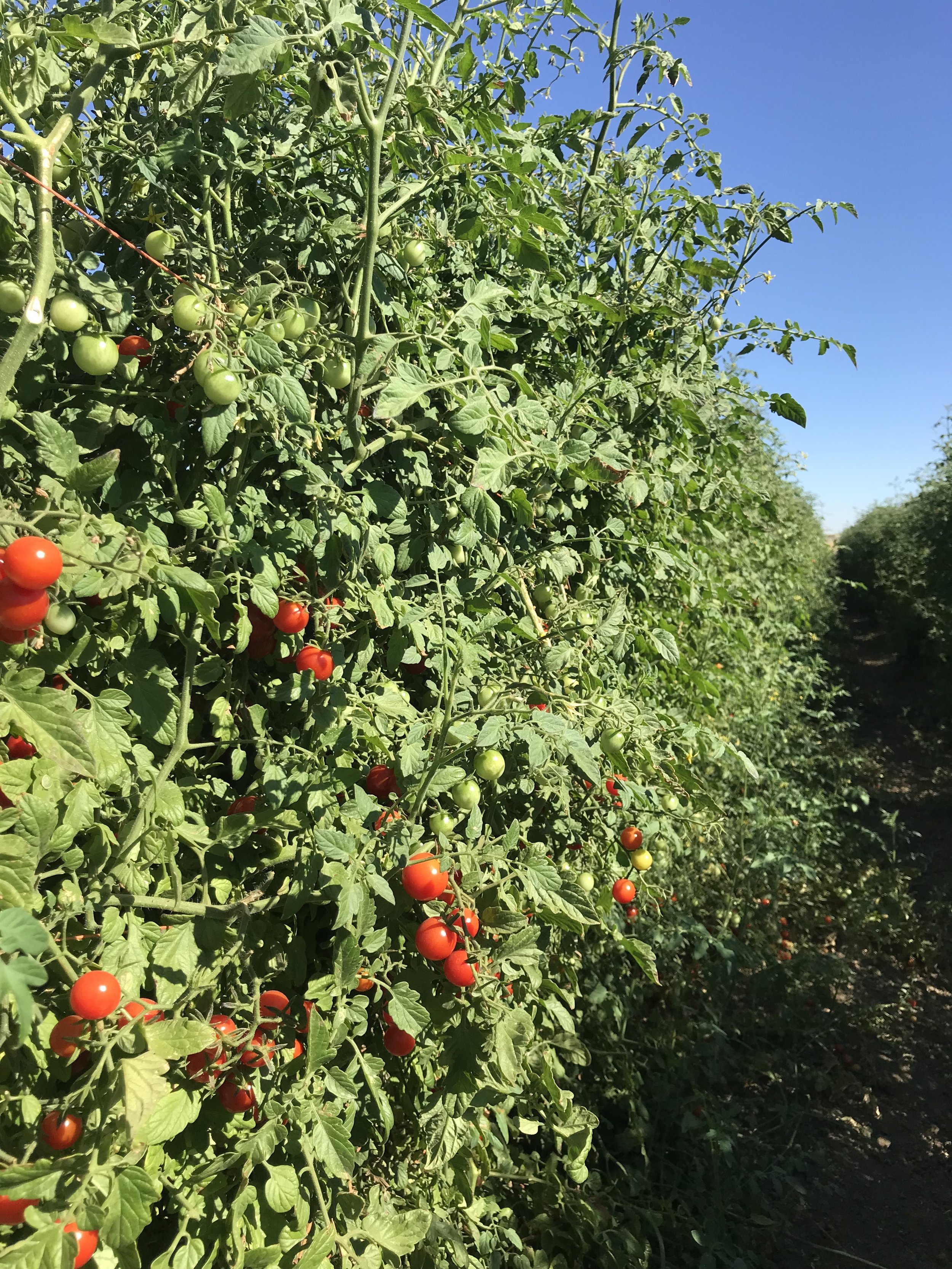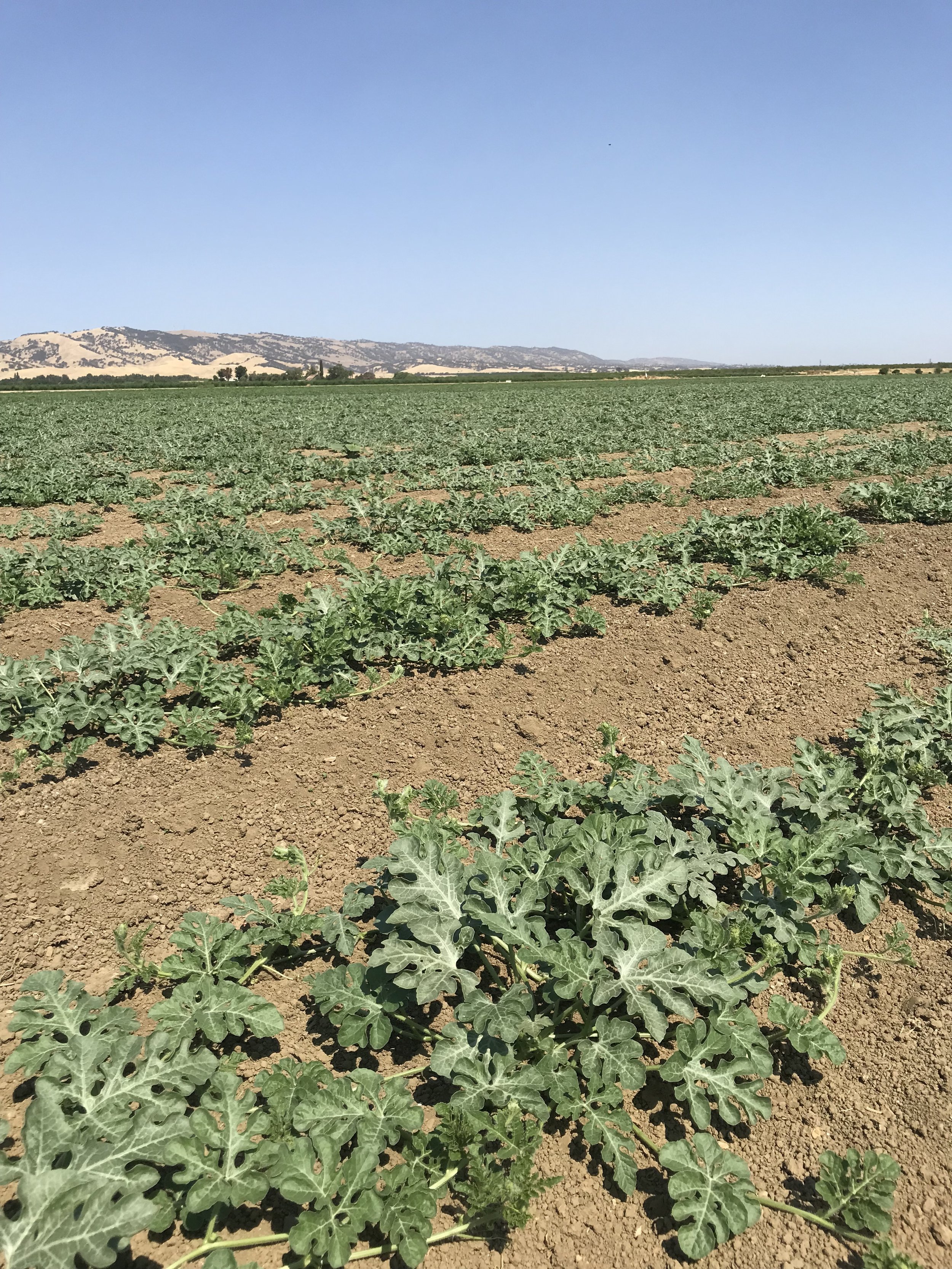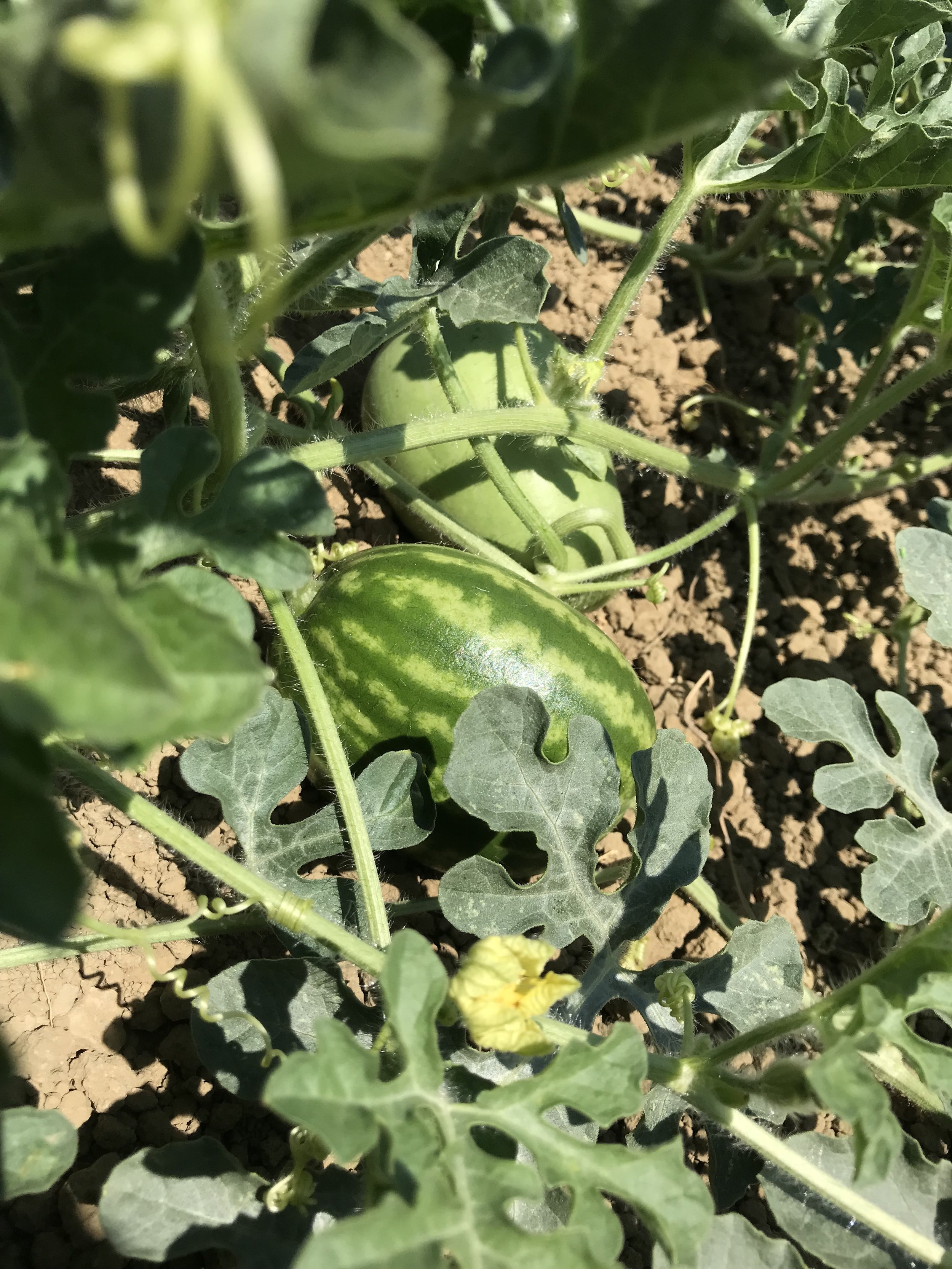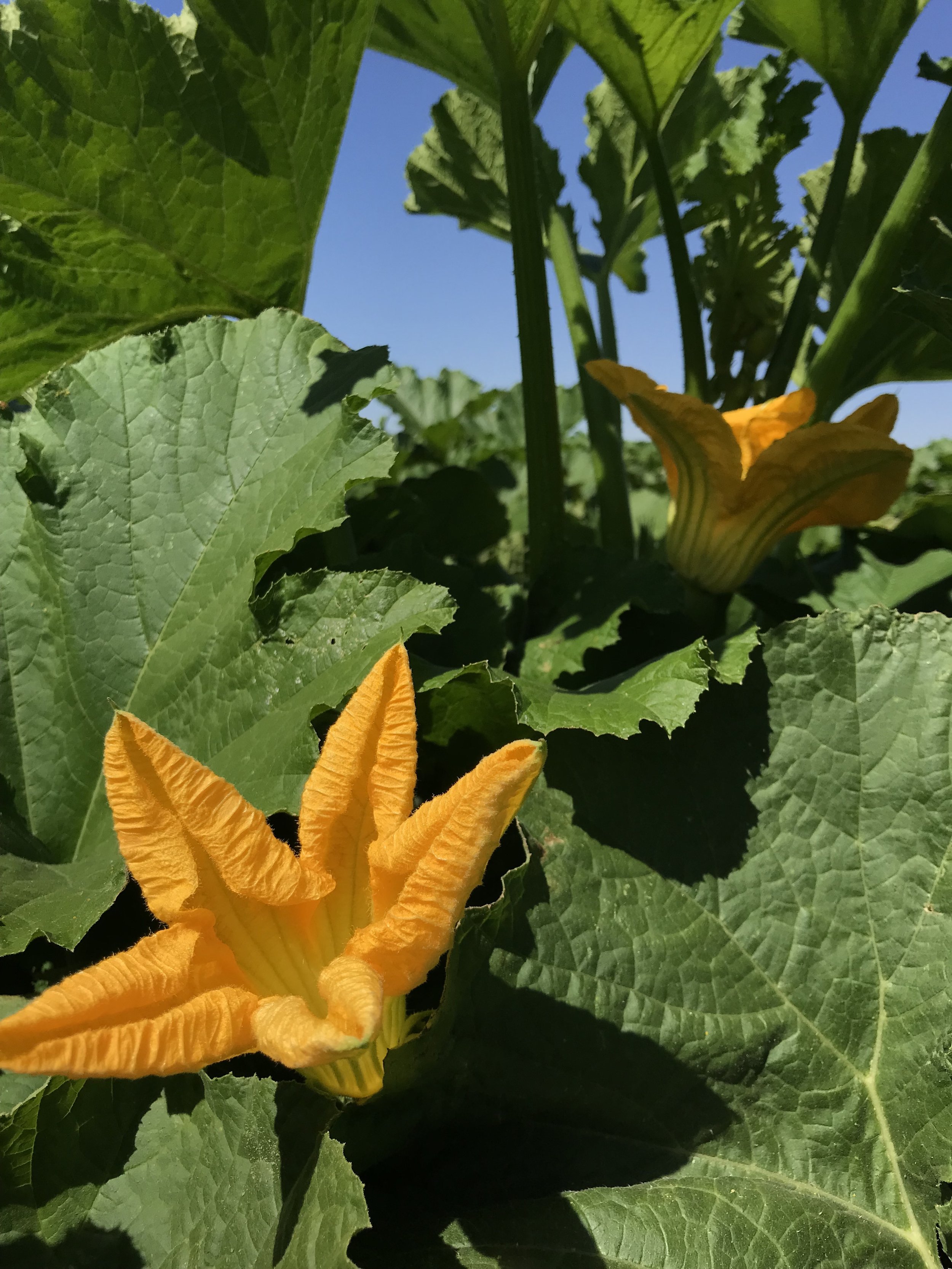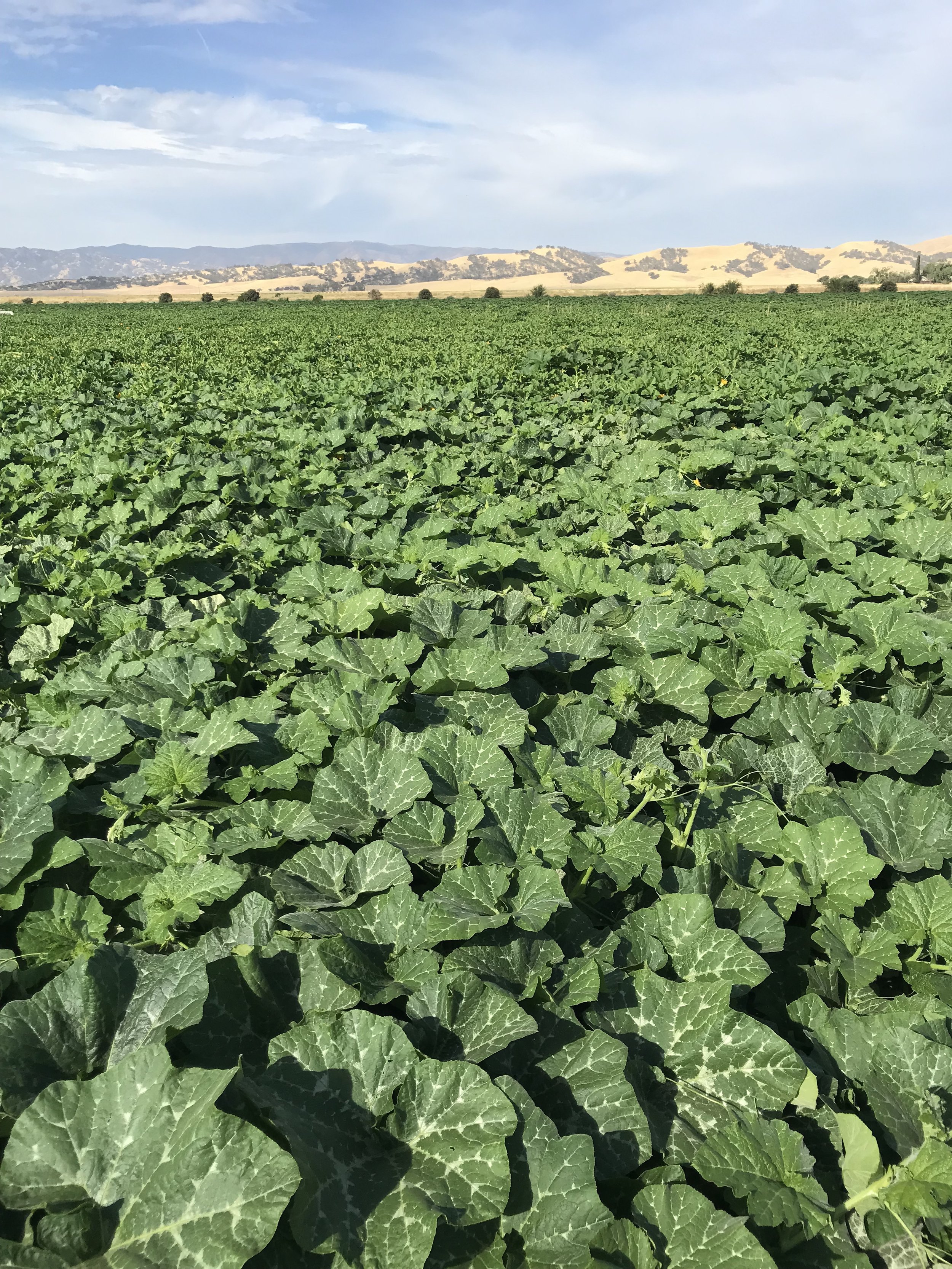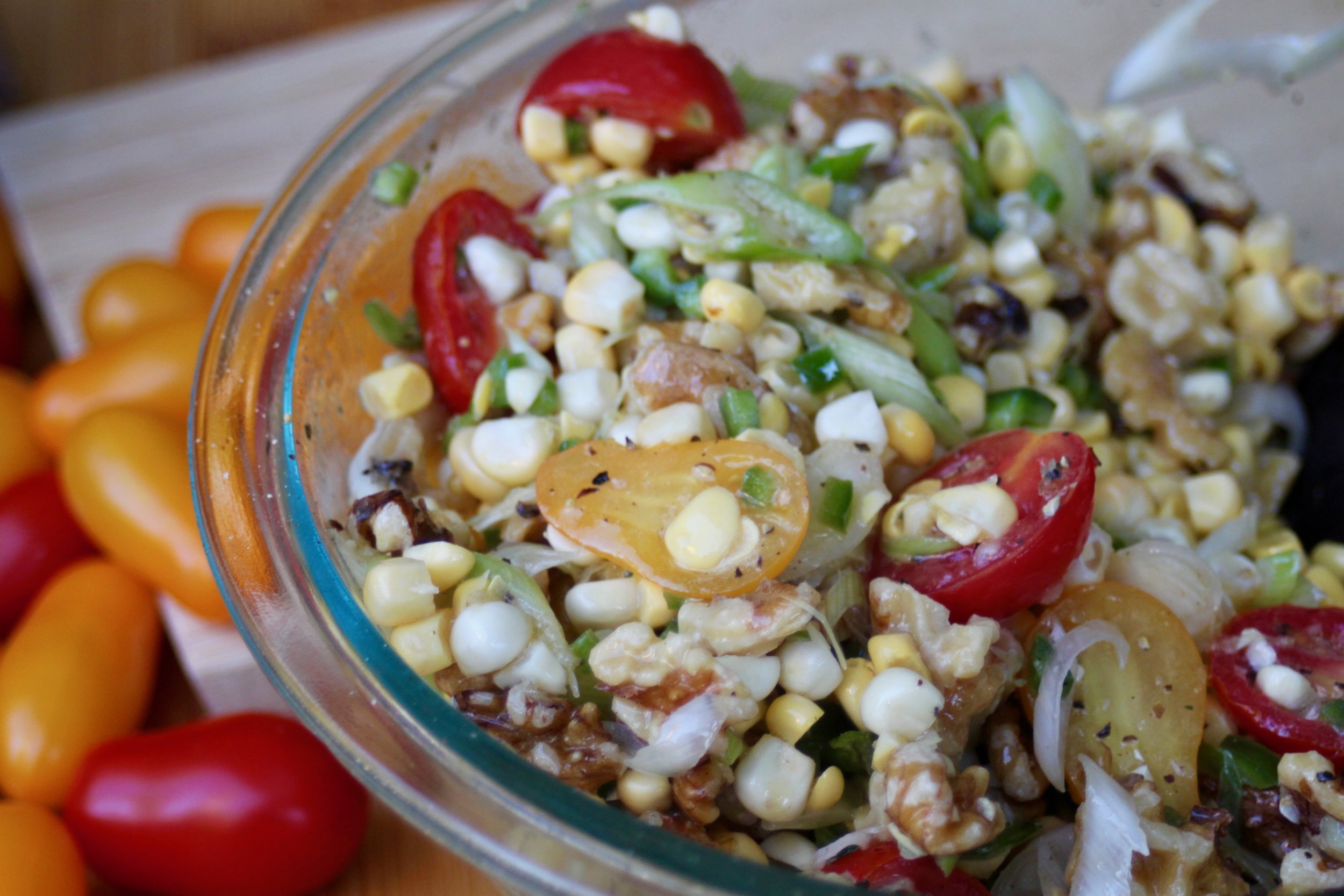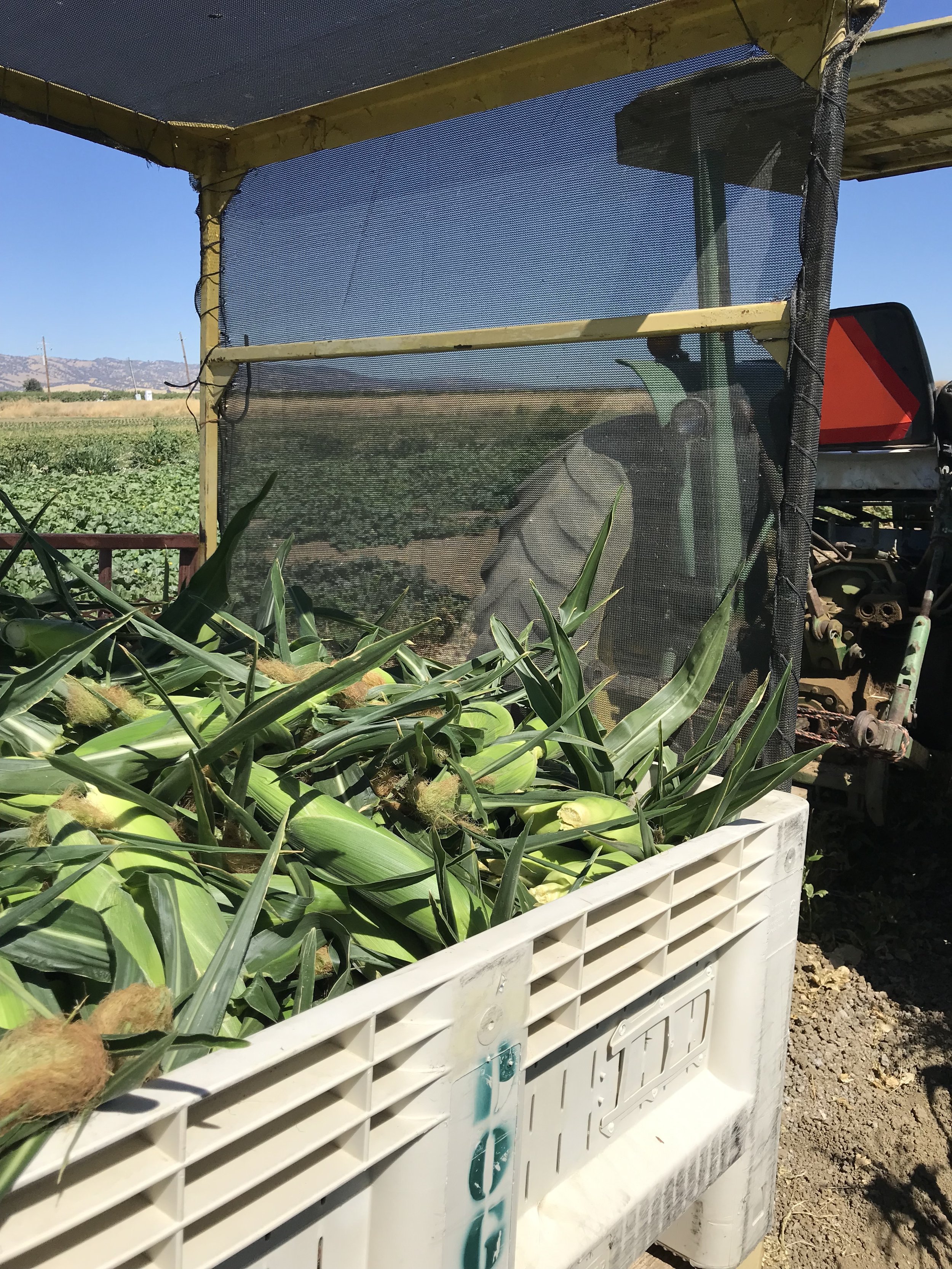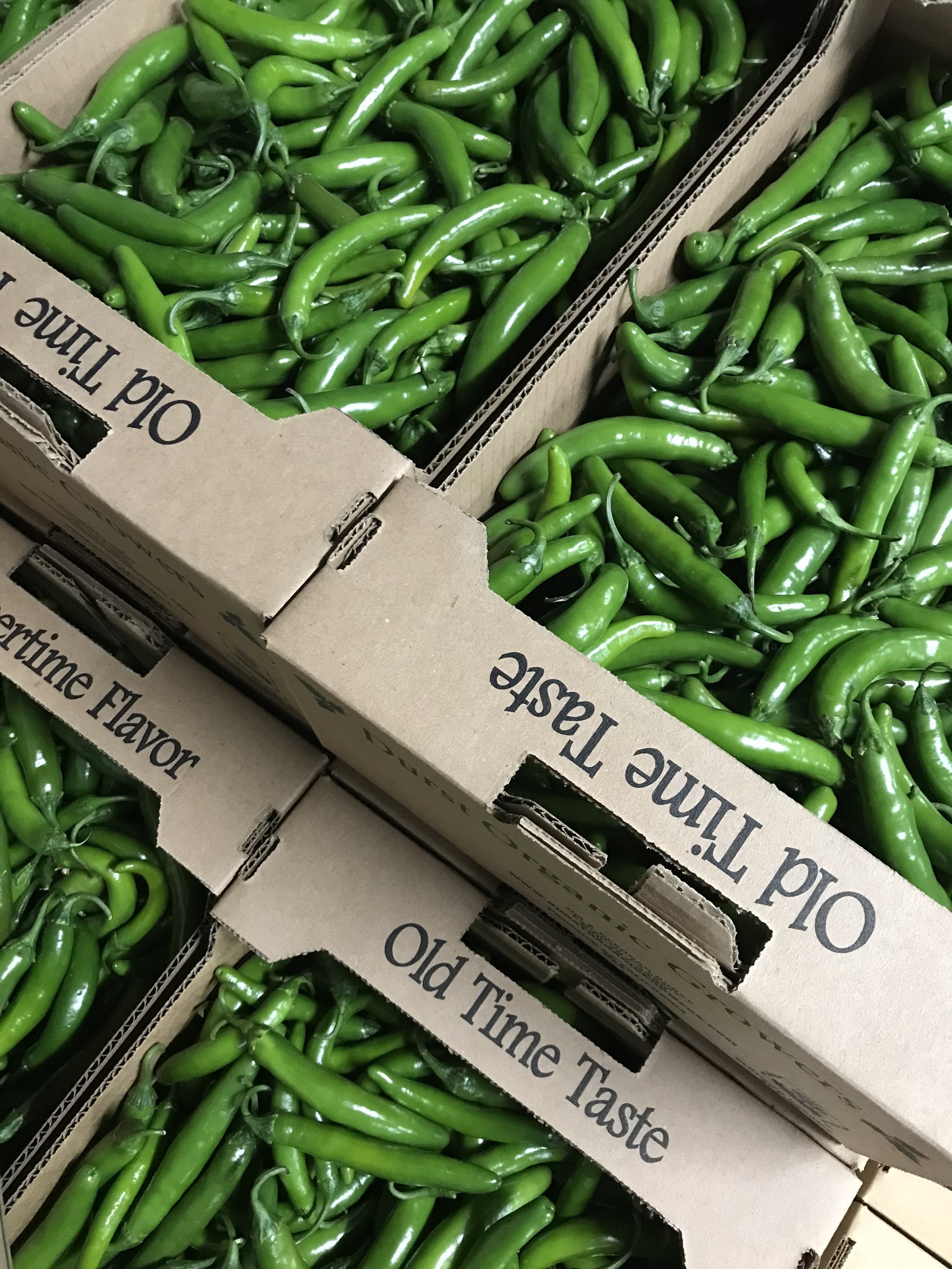Hungry Hollow Happenings: August 2022 Newsletter
Here we are in August, the last full calendar month of summer!
How the time flies during these long summer days -- long days that, in terms of daylight hours, are already getting shorter now that we’ve passed the Summer Solstice and are seemingly flying into fall.
A snapshot of August: Our pipe trailer parked in anticipation of setting up sprinklers for the fall transplants you see on the tractor in the background, along with a water truck to fill the tanks on the transplanter. The field next to the pipe tractor is planted in winter squash -- we will be harvesting that before we know it!
This last month has been a hot one; have you heard? Temperatures over 100 have become something of regularity in our region (and elsewhere) this summer, which, as you can imagine, is exacerbating the effects of our mega-drought.
Without a good store of moisture built-up from early season rains, the hot and dry climate we’re in is making it difficult to keep our soils at good moisture levels for the crops. Additionally, because of a lack of sufficient rainfall, there is no surface canal water available for irrigation use this season, meaning we have to rely solely on our wells.
We are fortunate enough to have strong wells, which pull from historically plentiful aquifers, and we have good pumps to operate the wells. We even have back-up pumps so that in the event one needs maintenance or breaks down, we can still irrigate. Unfortunately, though, the wells are limited in how much water they can deliver at one time. This becomes an issue when we have multiple crop blocks, all serviced by one well, all needing irrigation at once. Depending on the crop, the soil type, and the temperatures, it can take up to 12 hours to run a “full set” on any given block. With constant high temperatures, and many blocks to irrigate, one area can quickly become dry while waiting for it’s next turn in the rotation.
As we get farther into this “heat spell” of a summer, we are finding a need to think of back-up solutions to deliver more water and build back moisture in dryer areas of the field. One such solution in an especially dry block of later-season tomatoes was to try furrow irrigating. This irrigation method enables us to get a lot of water on a very dry area in a relatively short amount of time. It’s an irrigation practice that we typically utilize only in our grain crops, but you may often see growers furrow irrigating in sunflowers or processing tomatoes.
To furrow irrigate, we set up a large, long, pipe at one end of the field with "gates" spaced 60" apart that we can open or close as needed (see photos below). With the pipe hooked up, we turn on the water and let it flow out of the gates and down the furrows between the planted beds. The tomato plants, which were beginning to appear water stressed, have responded. Hopefully giving this extra shot of water weekly will be enough to get keep moisture levels at a point we can maintain with our buried drip system.
In addition to stressing the plants, dry soil conditions can also contribute to some pest issues – mites and powdery mildew favor dry soil conditions, and we are beginning to see them creeping up into our tomato vines. Untreated, mites and powdery mildew can take down plants, but with regular treatment (there are a few safe products we can use – sulfur is a common and cost-effective option, but it does leave some harmless, yet unaesthetic, residue on the fruit), we can keep the mites and mildew at bay until we are finished harvesting the crop.
On the note of harvest, our tomato plants are (finally) producing really well, exploding with beautiful and flavorful fruits, with lots of promising green fruits and bright yellow blossoms farther up the vines. You may have noticed our medleys are a little different this year – we changed up our mix to remove some varieties and add a few new shapes and colors (we took out the yellow pear and white cherry in favor of more sungold and orange grape, and also added back in the speckled chocolate sprinkles and the new-to-us multi-colored brad’s atomic grape). Hopefully you like the changes as much as we do!
Our 2022 Cherry Tomato Line-up!
For those of you looking forward to our watermelon: we’ve had a lot of struggles with that crop this year, and are seeing unfortunately low yields. What’s more frustrating, perhaps, is that we can’t quite pinpoint exactly what the problem is – we’ve seen a range of issues going on since planting from maggots chewing on the roots and stems of young spring starts, to (what appears to be) diseases affecting the vine vigor resulting in sunburned, unmarketable, fruit, to just plain low production (maybe stemming from pollination issues due to a lack of pollinator plants, which takes us back to the issues we saw in the spring in young plants). Likely, it’s a combination of many factors.
We’re working on figuring out the issues so as to avoid them next year, but all that is to say, despite our best efforts, we have some lulls in our watermelon harvest. We hope to see a good bounty from our later plantings, though – nothing is a guarantee, of course, but as of right now the last three plantings are looking great.
These last few years overall have presented us with so many new and confusing challenges. We’re still doing our best to address them all and come up with creative solutions to keep things running. Meanwhile, we can’t say enough how much we appreciate our supportive customers and community.
So, as we sign off for this newsletter, a big “Thank You,” again for your support, patience, and camaraderie as we keep on truckin’.
But, it wouldn’t be a Hungry Hollow newsletter if we didn’t mention what we’re cooking! If there is one thing we’re sure of, it’s that whatever we grow ought to taste good and keep us fueled. Right now we’re indulging on the summer’s fruits with watermelon slushies, melon sorbet, peach and tomato salads, salty sumac seasoning with watermelon…and so on and so forth. Oh, and fresh sweet corn.
As always, you can find some cooking inspiration on our website, and here’s just a taste of what’s cookin in our kitchens right now:
Cherry Tomato & Peach Salad
Tossed in a basil vinaigrette, and topped with arugula, cheese, and chives this salad is far from “fruit salad” territory.
Make it now while peaches are still in season!
Watermelon Slushie
The best way to cool off
Fresh Corn Salad with Cherry Tomatoes
A classic summer combo
That’s all for this update! If you enjoyed reading, and would like to get these letters delivered directly to your inbox in the future, click the button below — you’ll be able to see past issues and join our mailing list for future updates!


